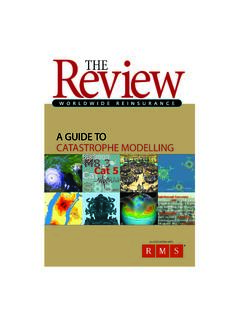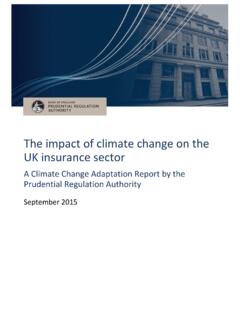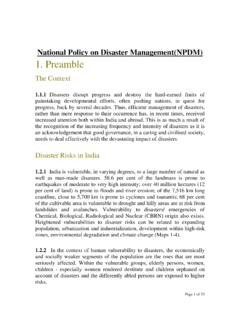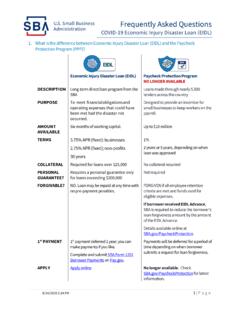Transcription of Did Trump Create or Inherit the Strong Economy?
1 Did < strong >Trumpstrong > < < strong >Strongstrong > >Createstrong >Strongstrong > > or < < strong >Strongstrong > >Inheritstrong >Strongstrong > > the < strong >Strongstrong > < strong >economystrong > ? The < strong >economystrong > is in its 11th year of expansion, with exceptionally low unemployment and robust job creation. There are signs that the < strong >economystrong > may be weakening due to the trade war and other factors, but so far, it has proven resilient. President Donald < strong >Trumpstrong > claims credit for the < strong >Strongstrong > < strong >economystrong > , saying that he inherited a disaster from President Barack Obama and that he accomplished an economic turnaround of historic proportions. 1. However, the truth is that by the time he became president, the < strong >economystrong > largely had recovered from the Great Recession and was nearing full strength. The question is whether President < strong >Trumpstrong > 's erratic policies will undermine the < strong >Strongstrong > < strong >economystrong > he inherited. Obama was handed an economic < strong >catastrophestrong > and prevented an even greater meltdown When Barack Obama became president in 2009, the < strong >economystrong > was experiencing what former Federal Reserve Chairman Ben Bernanke called the worst financial crisis in global history, including the Great Depression.
2 2 In the last quarter of 2008, real GDP plummeted percent and the < strong >economystrong > hemorrhaged more than million Barack Obama and Congressional Democrats took < strong >Strongstrong > action to rescue the < strong >economystrong > , including implementing the stimulus, the Troubled Asset Relief Program (TARP), financial reform and the auto bailout. In addition, the Federal Reserve lowered interest rates and took extraordinary measures to boost growth. Research by economists Alan Blinder and Mark Zandi found that without this multi-faceted response, the recession would have lasted twice as long, job < strong >lossesstrong > would have been twice as high and the drop in GDP would have been more than three times < strong >Trumpstrong > inherited a < strong >Strongstrong > < strong >economystrong > that got stronger Unemployment: Under Obama, unemployment fell from a recession-peak of 10 percent to only percent. It has continued to drop and now is Job growth: By the end of the Obama administration, the < strong >economystrong > had experienced 76.
3 Consecutive months of job growth. Since < strong >Trumpstrong > became president, the streak has been extended to 111 consecutive months. Average monthly job growth: During the last 35 months of the Obama administration, non-farm job growth averaged 227,000 per month. During the first 35 months of the < strong >Trumpstrong > administration, the average was 36,000 jobs per month less, averaging 191,000 per month. GDP growth: Average real GDP growth was roughly the same ( percent) for the first 11. quarters under President < strong >Trumpstrong > (ending September 2019) and for the last 11 quarters of the Obama administration. Income: During the last two years of the Obama administration, annual median household income increased $4,800. This is three times more than the $1,400 increase during the first two years of the < strong >Trumpstrong > Page 1. Did < strong >Trumpstrong > < < strong >Strongstrong > >Createstrong >Strongstrong > > or < < strong >Strongstrong > >Inheritstrong >Strongstrong > > the < strong >Strongstrong > < strong >economystrong > ? The stock market: President < strong >Trumpstrong > frequently points to the stock market as evidence of his success, even though it is a poor proxy for the nation's overall economic well-being since nearly half of Americans do not own stock, either directly or indirectly.
4 However, even by this measure, he lags behind President Obama. In President < strong >Trumpstrong > 's first three years in office, the Dow Jones Industrial Average (DJIA) increased almost 50 percent, while over the eight years of the Obama administration, the DJIA increased almost 140 percent a substantially greater pace. Mainstream economists say the < strong >economystrong > was < strong >Strongstrong > before < strong >Trumpstrong > took office Greg Mankiw, chairman of the Council of Economic Advisers under George W. Bush, states that the < strong >economystrong > was in fine shape at the end of the Obama administration, despite what President < strong >Trumpstrong > sometimes asserts. 7. A substantial part of economic progress under < strong >Trumpstrong > occurred before his signature economic policy took effect President < strong >Trumpstrong > 's most significant economic policy, his $ trillion tax cuts, did not take effect until January 2018 a year after he took office. By that time, unemployment had dropped from to percent, household incomes had increased $850 and million new jobs had been created.
5 The tax cuts may have caused a slight sugar high but at a very high price The 2017 tax cuts likely added some fuel to the < strong >economystrong > because they increased corporate profits (benefiting shareholders) and gave individuals more money to spend. However, many economists say that the sugar high from the tax cuts is wearing off. In fact, business investment has declined for two consecutive quarters and a recent analysis by The New York Times found no relationship between the size of the tax cut companies and industries received and their In the long term, the $ trillion in new federal debt likely will weigh down the < strong >Trumpstrong > 's trade war hurts consumers, businesses and the < strong >economystrong > American businesses and consumers, not foreigners, pay tariffs. Although the tariffs hurt China by reducing demand for more Chinese goods, they also hurt American businesses that pay the tariffs, American consumers who buy the higher-priced products, American farmers who are hit with reciprocal tariffs and the < strong >economystrong > , which is weighed down by the interaction of these forces.
6 There clearly are American casualties in the trade war the magnitude of the long-term damage is yet to be seen. One analysis finds that the trade war with China had already cost 300,000 American jobs as of September 2019 and the number would rise to 450,000 by the end of Furthermore, the Congressional Budget Office estimates that the trade war will reduce GDP by percent in While < strong >Trumpstrong > argues that his phase-one trade deal announced earlier this month was historic, it fell short on many accounts: it didn't eradicate all import tariffs, it didn't address fundamental issues like China's corporate subsidies and other unfair practices and it relied on Chinese promises to step up purchases of American goods that very well may not come to fruition. < strong >Trumpstrong > inherited a < strong >Strongstrong > < strong >economystrong > will he weaken it? It is clear that < strong >Trumpstrong > inherited a < strong >Strongstrong > < strong >economystrong > that was still trending upward when he entered office those trends have continued.
7 The < strong >economystrong > may have received a small boost from the 2017 tax cuts, but many economists believe that sugar high will be short-lived. Meanwhile, the < strong >Trumpstrong > trade war has hurt American consumers and businesses, and it may slow future economic growth. In short, < strong >Trumpstrong > inherited a < strong >Strongstrong > < strong >economystrong > from Barack Obama. The question is whether he will weaken it. Page 2. Did < strong >Trumpstrong > < < strong >Strongstrong > >Createstrong >Strongstrong > > or < < strong >Strongstrong > >Inheritstrong >Strongstrong > > the < strong >Strongstrong > < strong >economystrong > ? Page 3. Did < strong >Trumpstrong > < < strong >Strongstrong > >Createstrong >Strongstrong > > or < < strong >Strongstrong > >Inheritstrong >Strongstrong > > the < strong >Strongstrong > < strong >economystrong > ? Page 4. Did < strong >Trumpstrong > < < strong >Strongstrong > >Createstrong >Strongstrong > > or < < strong >Strongstrong > >Inheritstrong >Strongstrong > > the < strong >Strongstrong > < strong >economystrong > ? Page 5. Did < strong >Trumpstrong > < < strong >Strongstrong > >Createstrong >Strongstrong > > or < < strong >Strongstrong > >Inheritstrong >Strongstrong > > the < strong >Strongstrong > < strong >economystrong > ? 1. Boak, J. and Rugaber, C. 2018. AP FACT CHECK: < strong >Trumpstrong > falsely claims historic turnaround. Associated Press. Retrieved from 2. Worstall, T. 2014. Ben Bernanke: The 2008 Financial Crisis Was Worse Than The Great Depression. Forbes. Retrieved from worse-than-the-great-depression/#e94a817 68419. 3. The Employment Situation December 2008.
8 Bureau of Labor Statistics. Retrieved from 4. Blinder, A. and Zandi, M. 2015. The Financial Crisis: Lessons for the Next One. Center on Budget and Policy Priorities. Retrieved from 5. The Employment Situation October 2019. Bureau of Labor Statistics. Retrieved from 6. This does not include the 10 months of 2019 because annual data are not yet available, nor does it include the last 10. months of 2014 under Obama. See previous JEC memo for more information. 7. Baker, P. 2018. < strong >Trumpstrong > Claims Credit for the < strong >economystrong > . Not So Fast, Says Obama. The New York Times. Retrieved from 8. Tankersley, J., Eavis, P. and Casselman, B. 2019. How FedEx Cut Its Tax Bill to $0. The New York Times. Retrieved from #click= 9. An Update to the Budget and Economic Outlook: 2019 to 2029. 2019. Congressional Budget Office. Retrieved from 10. Layne, R. 2019. < strong >Trumpstrong > trade war with China has cost 300,000 jobs, Moody's estimates. CBS News.
9 Retrieved from 11. Fried, D. 2019. The Effects of Tariffs and Trade Barriers in CBO's Projections. Congressional Budget Office. Retrieved from Page 6.













